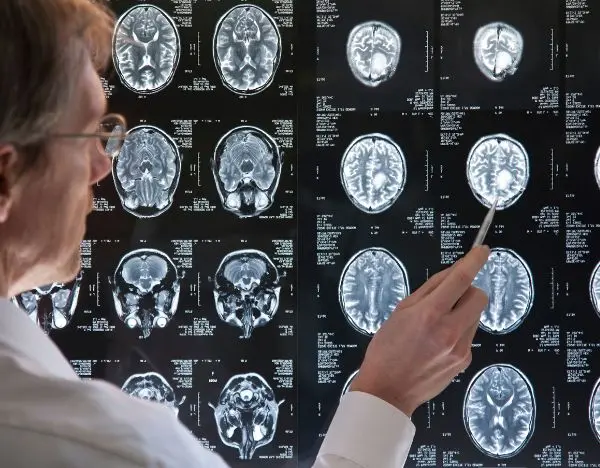
Social media has revolutionized how we interact, creating new ways to connect and communicate. However, with the rise of social media platforms, we have seen a dramatic increase in teens addicted to social media. Social media addiction can have numerous physical and mental harmful effects and can negatively impact a person's overall well-being.

Social media addiction in teens refers to excessive and compulsive use of social media platforms such as Instagram, Snapchat, Facebook, and Twitter. It can lead to negative consequences such as poor academic performance, decreased face-to-face communication skills, and increased risk of anxiety and depression. Teenagers who are addicted to social media may experience withdrawal symptoms when they are unable to access their accounts and may spend hours scrolling through their feeds instead of engaging in other activities.
One of the main ways social media can impact the brain is by triggering the release of dopamine, a neurotransmitter associated with pleasure and reward. When we receive likes, comments, or other forms of social validation on our posts, it can activate the brain's reward system, leading to feelings of pleasure and satisfaction.
However, this constant stimulation can also lead to addiction-like behaviors as people increasingly rely on social media to feel good. This can have adverse effects on mental health, as people may become anxious or depressed when they are unable to access social media or receive the validation they are seeking.
In addition to the impact on dopamine levels, social media can also have a negative impact on attention and cognitive function. Studies have shown that frequent social media use is associated with decreased attention span and lower performance on tasks that require sustained focus.
The negative effects of social media addiction can include decreased productivity, increased anxiety and depression, lack of sleep, strained relationships, and decreased face-to-face communication skills. Additionally, excessive social media use can lead to a distorted sense of reality and a constant need for validation and attention. It can also contribute to feelings of isolation and loneliness.
One of social media addiction's most significant harmful effects is its impact on mental health. Social media has been shown to increase anxiety and depression among individuals, particularly those who spend excessive time on these platforms.
Social media platforms are designed to keep users engaged for as long as possible, often leading to feelings of:
The constant barrage of notifications, updates, and posts can make it challenging to switch off from social media and take time for oneself.
Studies have also shown that social media addiction can lead to a lack of sleep and poor sleep quality, further exacerbating anxiety and depression. The blue light emitted by screens can interfere with the body's production of melatonin, a hormone that regulates sleep. This can make it difficult to fall asleep and stay asleep, leading to tiredness and fatigue the following day.
Another harmful effect of social media addiction in teens is its impact on physical health. Spending prolonged periods sitting in front of a screen can lead to a sedentary lifestyle, increasing the risk of:
Moreover, excessive use of social media can lead to eye strain, headaches, and even vision problems.
Social media addiction can also negatively impact a teen's relationships. The constant need to check social media can make it challenging to be present in real-life interactions, leading to a lack of meaningful connections with others. Moreover, social media addiction can cause individuals to become obsessed with their online persona, leading them to prioritize their online image over their real-life relationships. This can lead to feelings of loneliness and isolation, which can further exacerbate mental health problems.
Finally, social media addiction can also impact a person's self-esteem and sense of identity. Social media platforms are designed to highlight the most perfect and curated aspects of a person's life, leading to a distorted sense of reality. Comparing oneself to others on social media can lead to feelings of inadequacy and a lack of self-confidence. Moreover, the constant need for validation through likes and comments can lead to an unhealthy fixation on external validation rather than building self-esteem from within.
Many social media algorithms, such as Meta's, are made to be addictive, showing more of what the user is engaging with. This can be troubling when minors watch videos with self-harm content, suicidal ideology, or even eating disorder encouragement. The constant exposure to these dangerous behaviors has caused teens to harm themselves, develop eating disorders, and even commit suicide. That's why, in California, there's a class action lawsuit against social media giants like Meta, claiming they are in part liable for the harm or death of minors.
It is difficult to accurately estimate the number of teens addicted to social media, as it is a subjective concept. However, multiple studies have found that around 1 in 3 teens show signs of being addicted to social media.
In conclusion, social media addiction can harm a person's physical and mental health, relationships, and professional life. Excessive use of social media can lead to anxiety and depression, poor sleep quality, and a sedentary lifestyle. Moreover, social media addiction can negatively impact personal relationships and lead to a distorted sense of reality and self-esteem. To combat social media addiction, individuals should consider setting boundaries on their social media use, taking regular breaks from screens, and prioritizing real-life relationships and activities. It is essential to recognize the harmful effects of social media addiction and take steps to mitigate its impact on our lives.











